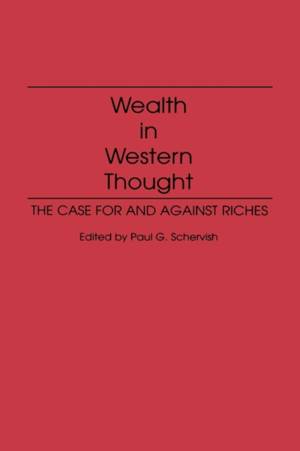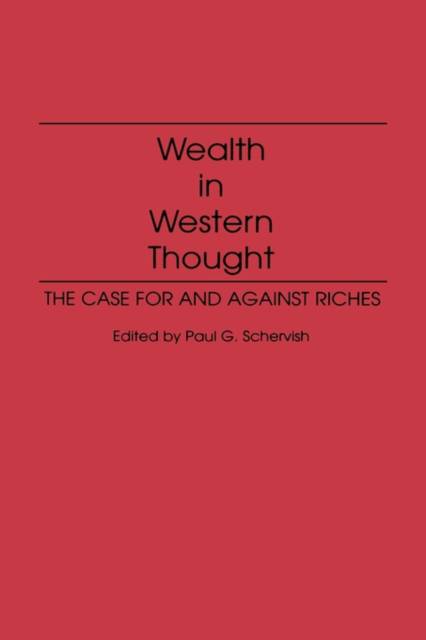
- Afhalen na 1 uur in een winkel met voorraad
- Gratis thuislevering in België vanaf € 30
- Ruim aanbod met 7 miljoen producten
- Afhalen na 1 uur in een winkel met voorraad
- Gratis thuislevering in België vanaf € 30
- Ruim aanbod met 7 miljoen producten
Zoeken
Wealth in Western Thought
The Case for and Against Riches
Paul G Schervish, Nancy Stave Campbell
Hardcover | Engels
€ 161,45
+ 322 punten
Omschrijving
Based on roundtable discussions by a variety of scholars over a two-year period, these essays explore the complex and often contradictory matrix of sentiments, feelings, and beliefs that frame America's contemporary social doctrine of wealth. The seven Boston College faculty members whose writings comprise this volume are professors of classics, economics, ethics, history, literature, scripture, and sociology. Each scholar reviews a a range of writings and narratives that enunciate definite theses about the genesis and prospects as well as the uses and abuses of wealth. Today, as the discussion of wealth creation and distribution become framed less frequently under the rubrics of capitalism and socialism, it is propitious to examine other pieces of the debate that come to us from our Western classical, biblical, literary, and ethical traditions. The talk for and against wealth, so well articulated by Adam Smith and Karl Marx, is only one axis on which this important Western motif turns. Schervish and his contributors enable us to consult several other texts that can guide our repositioning on the controversies surrounding the moral status of wealth and the wealthy.
Specificaties
Betrokkenen
- Auteur(s):
- Uitgeverij:
Inhoud
- Aantal bladzijden:
- 272
- Taal:
- Engels
Eigenschappen
- Productcode (EAN):
- 9780275946777
- Verschijningsdatum:
- 30/05/1994
- Uitvoering:
- Hardcover
- Formaat:
- Genaaid
- Afmetingen:
- 152 mm x 229 mm
- Gewicht:
- 571 g

Alleen bij Standaard Boekhandel
+ 322 punten op je klantenkaart van Standaard Boekhandel
Beoordelingen
We publiceren alleen reviews die voldoen aan de voorwaarden voor reviews. Bekijk onze voorwaarden voor reviews.











